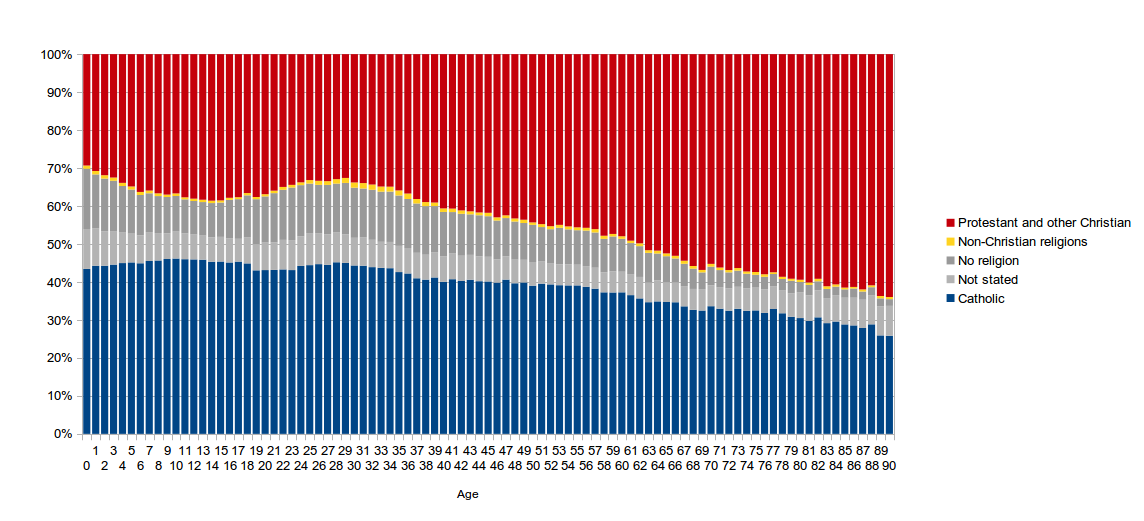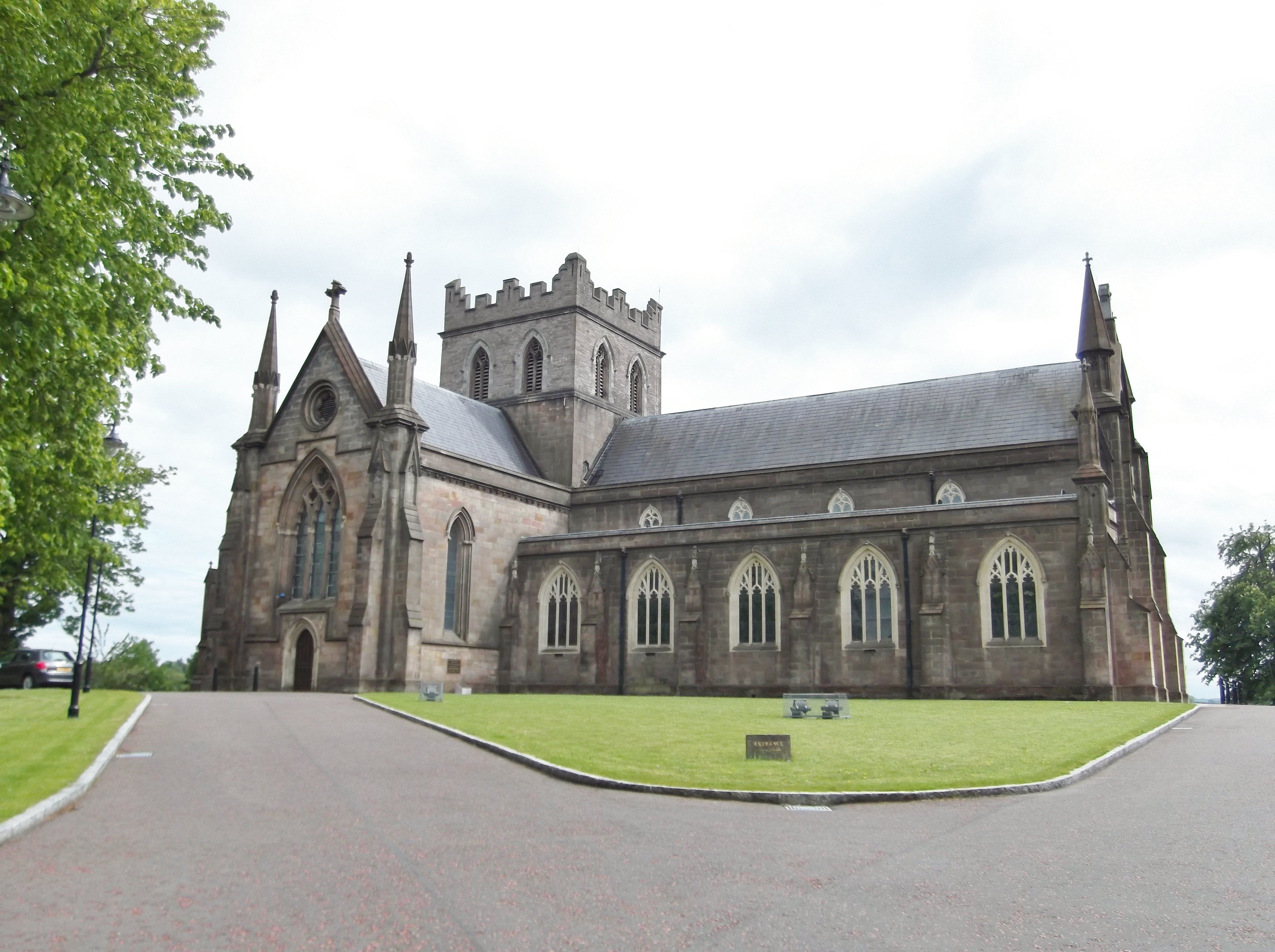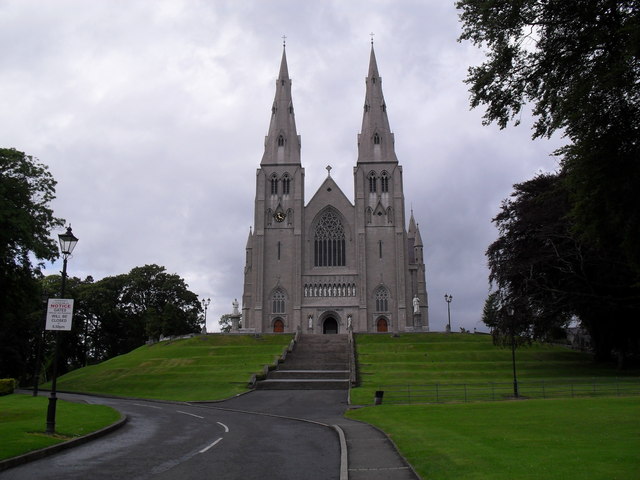Religion in Northern Ireland on:
[Wikipedia]
[Google]
[Amazon]
 The 2001 and 2011 Census figures for ''Religion'' (not ''Religion or Religion Brought Up In'') are set out below.
The religious affiliations in the local authority districts (themselves not merged since 2011" of Northern Ireland were as follows:
The 2001 and 2011 Census figures for ''Religion'' (not ''Religion or Religion Brought Up In'') are set out below.
The religious affiliations in the local authority districts (themselves not merged since 2011" of Northern Ireland were as follows:
 Religions broken down by place of birth in the 2011 census.
Religions broken down by place of birth in the 2011 census.
 The religious affiliations in the different age bands in the 2011 census were as follows:
The religious affiliations in the different age bands in the 2011 census were as follows:



 Christianity is the main religion in Northern Ireland. The 2011 UK census showed 40.8% Catholic, 19.1% Presbyterian Church, with the
Christianity is the main religion in Northern Ireland. The 2011 UK census showed 40.8% Catholic, 19.1% Presbyterian Church, with the
Homepage of the Irish Bishops' Conference (Catholic)CatholicIreland.net, Content-rich portal of the Catholic Church in IrelandPresbyterian Church in IrelandChurch of IrelandMethodist Church in IrelandAssociation of Baptist Churches in IrelandAssemblies of God Ireland
{{DEFAULTSORT:Religion In Northern Ireland *
Christianity
Christianity is an Abrahamic monotheistic religion based on the life and teachings of Jesus of Nazareth. It is the world's largest and most widespread religion with roughly 2.38 billion followers representing one-third of the global popula ...
is the largest religion in Northern Ireland. At the 2021 census, the prevalence rates for the main religions were: Catholic (42 per cent); Presbyterian (16 per cent); Church of Ireland (11.5 per cent); Methodist (2.4 per cent); Other Christian or Christian-related denominations (6.9 per cent); other Religions and Philosophies (1.3 per cent); those declaring no religion (17.4 per cent) and religion not stated (1.5 per cent). The Catholic Church has seen a small growth in adherents, while the other Christian groups have seen a small decrease.
There are also small Hindu, Sikh, Muslim, Buddhist and Jewish communities. Belfast
Belfast ( , ; from ga, Béal Feirste , meaning 'mouth of the sand-bank ford') is the capital and largest city of Northern Ireland, standing on the banks of the River Lagan on the east coast. It is the 12th-largest city in the United Kingdom ...
has a synagogue, a gurdwara, a mosque and two Hindu temples. There is another gurdwara in Derry
Derry, officially Londonderry (), is the second-largest city in Northern Ireland and the fifth-largest city on the island of Ireland. The name ''Derry'' is an anglicisation of the Old Irish name (modern Irish: ) meaning 'oak grove'. The ...
.
Statistics
 The 2001 and 2011 Census figures for ''Religion'' (not ''Religion or Religion Brought Up In'') are set out below.
The religious affiliations in the local authority districts (themselves not merged since 2011" of Northern Ireland were as follows:
The 2001 and 2011 Census figures for ''Religion'' (not ''Religion or Religion Brought Up In'') are set out below.
The religious affiliations in the local authority districts (themselves not merged since 2011" of Northern Ireland were as follows:
 Religions broken down by place of birth in the 2011 census.
Religions broken down by place of birth in the 2011 census.
 The religious affiliations in the different age bands in the 2011 census were as follows:
The religious affiliations in the different age bands in the 2011 census were as follows:

Christianity


 Christianity is the main religion in Northern Ireland. The 2011 UK census showed 40.8% Catholic, 19.1% Presbyterian Church, with the
Christianity is the main religion in Northern Ireland. The 2011 UK census showed 40.8% Catholic, 19.1% Presbyterian Church, with the Church of Ireland
The Church of Ireland ( ga, Eaglais na hÉireann, ; sco, label= Ulster-Scots, Kirk o Airlann, ) is a Christian church in Ireland and an autonomous province of the Anglican Communion. It is organised on an all-Ireland basis and is the sec ...
having 13.7% and the Methodist Church 5.0%. Members of other Christian churches comprised 5.8%, 17% stated they have no religion or did not state a religion, and members of non-Christian religions were 0.8%.
The Catholic Church
The Catholic Church, also known as the Roman Catholic Church, is the List of Christian denominations by number of members, largest Christian church, with 1.3 billion baptized Catholics Catholic Church by country, worldwide . It is am ...
is the largest single church. The Church is organised into four provinces though these are not coterminous with the modern political division of Ireland. The seat of the Archbishop of Armagh
In Christian denominations, an archbishop is a bishop of higher rank or office. In most cases, such as the Catholic Church, there are many archbishops who either have jurisdiction over an ecclesiastical province in addition to their own archdio ...
, the Primacy of Ireland
The Primacy of Ireland was historically disputed between the Archbishop of Armagh and the Archbishop of Dublin until finally settled by Pope Innocent VI. ''Primate'' is a title of honour denoting ceremonial precedence in the Church, and in ...
, is St. Patrick's Cathedral, Armagh
Armagh ( ; ga, Ard Mhacha, , "Macha's height") is the county town of County Armagh and a city in Northern Ireland, as well as a civil parish. It is the ecclesiastical capital of Ireland – the seat of the Archbishops of Armagh, the ...
.
The Presbyterian Church in Ireland
The Presbyterian Church in Ireland (PCI; ga, Eaglais Phreispitéireach in Éirinn; Ulster-Scots: ''Prisbytairin Kirk in Airlann'') is the largest Presbyterian denomination in the Republic of Ireland, and the largest Protestant denomination in ...
, closely -but not formally - linked to the Church of Scotland
The Church of Scotland ( sco, The Kirk o Scotland; gd, Eaglais na h-Alba) is the national church in Scotland.
The Church of Scotland was principally shaped by John Knox, in the Reformation of 1560, when it split from the Catholic Church ...
in terms of theology and history, is the second-largest church and largest Protestant denomination. It is followed by the Anglican Church of Ireland
The Church of Ireland ( ga, Eaglais na hÉireann, ; sco, label= Ulster-Scots, Kirk o Airlann, ) is a Christian church in Ireland and an autonomous province of the Anglican Communion. It is organised on an all-Ireland basis and is the sec ...
, which was the state church of Ireland until it was disestablished by the '' Irish Church Act 1869''. In 2002, the much smaller Methodist Church in Ireland
The Methodist Church in Ireland ( Ulster-Scots: ''Methody Kirk in Airlann'', ) is a Wesleyan Methodist church that operates across both Northern Ireland and the Republic of Ireland on an all-Ireland basis. It is the fourth-largest Christian denom ...
signed a covenant for greater co-operation and potential ultimate unity with the Church of Ireland. The Church of Ireland is part of the Anglican Communion
The Anglican Communion is the third largest Christian communion after the Roman Catholic and Eastern Orthodox churches. Founded in 1867 in London, the communion has more than 85 million members within the Church of England and other ...
.
Smaller Protestant denominations such as the Free Presbyterian Church of Ulster
:''Distinct from Free Presbyterian Church of Scotland and Free Church of Scotland (post 1900)''
The Free Presbyterian Church of Ulster ( ga, Eaglais Phreispitéireach Saor Uladh) is a Calvinist denomination founded by Ian Paisley in 1951. Doctri ...
, Reformed Presbyterian Church of Ireland
The Reformed Presbyterian Church of Ireland is a Presbyterian church in Ireland. The church currently has forty-three congregations, of which thirty-five are located in Northern Ireland; the remaining eight are located in the Republic of Ireland. A ...
amongst Presbyterians and the Open Brethren
The Open Brethren, sometimes called Christian Brethren, are a group of Evangelical Christian churches that arose in the late 1820s as part of the Assembly Movement within the Plymouth Brethren tradition. They originated in Ireland before spreadi ...
exist in many rural communities. The Association of Baptist Churches in Ireland
The Association of Baptist Churches in Ireland (ABC, ABCi and ABCI) is a Baptist Christian denomination based in Ireland. It is a group of 117 autonomous Baptist churches working together in fellowship and evangelism, training and caring minis ...
and the Assemblies of God Ireland are also organised on an all-Ireland basis, though in the case of the Assemblies of God this was the result of a recent reorganisation.
Comparison with Great Britain
In the 2011 census Northern Ireland had substantially more people stating that they were Christian (82.2%) than did England (59.4%), Scotland (53.8%) or Wales (57.6%). The proportion who stated that they had any religion was also higher in Northern Ireland (83%) than in England (68.1%), Scotland (56.3%) or Wales (60.3%). In Northern Ireland those who did not state any religion in the 2011 census amounted to 13.9% of the population, lower than in England (31.9%), Scotland (43.7%) or Wales (39.7%). This represented an increase from the 2001 census in those not stating a religion of 117% in Northern Ireland, lower than the increases in England (54.5%), Scotland (38.1%) or Wales (57.6%).Secularisation
In sociology, secularization (or secularisation) is the transformation of a society from close identification with religious values and institutions toward non-religious values and secular institutions. The ''secularization thesis'' expresses the ...
in Northern Ireland has followed different paths within each of the two main communities, being at a more advanced stage within the mainly Protestant community in which it is reflected more often with a formal move away from the churches and by expressing no formal religious attachment, mirroring the pattern in Great Britain, whereas in the mainly Catholic community it is reflected by declining mass attendance but often with retaining a formal Catholic identification, mirroring the pattern in the Republic of Ireland. Those stating that they had no religion in the 2011 census were concentrated in largely Protestant areas, suggesting that they were mostly from a Protestant background.
Comparison with the Republic of Ireland
In their respective 2011 censuses Northern Ireland had a lower proportion of people stating that they were Christian (82.3%) than the Republic of Ireland (90.4%) and had a higher proportion of people stating that they had no religion or not indicating a religious belief (16.9%) than the Republic of Ireland (7.6%). While in the 2011 census 84.2% of people in the Republic of Ireland identified themselves as Catholic in the 2011 census in Northern Ireland only 40.8% identified themselves as Catholic.Minor religions
Islam
While there were a small number ofMuslim
Muslims ( ar, المسلمون, , ) are people who adhere to Islam, a monotheistic religion belonging to the Abrahamic tradition. They consider the Quran, the foundational religious text of Islam, to be the verbatim word of the God of Abrah ...
s already living in what became Northern Ireland in 1921, the bulk of Muslims in Northern Ireland today come from families who immigrated during the late 20th century. At the time of the 2011 Census there were 3,832 living in Northern Ireland
Northern Ireland ( ga, Tuaisceart Éireann ; sco, label=Ulster Scots dialect, Ulster-Scots, Norlin Airlann) is a part of the United Kingdom, situated in the north-east of the island of Ireland, that is #Descriptions, variously described as ...
, though the Belfast Islamic Centre states this number may be as high as 10,000 due to other social demographics such as students. The Muslims in Northern Ireland come from over 40 countries of origin, from Western Europe all the way through to the Far East. This situation is reflected in comparably complex institutional arrangements.
Judaism
The earliest recorded Jew living in Northern Ireland was a tailor by the name of Manuel Lightfoot in 1652. The first Jewish congregation in Northern Ireland,Belfast Hebrew Congregation
The Belfast Jewish Community ( ga, Pobal Giúdach Bhéal Feirste, and previously known as Belfast Hebrew Congregation) is the Jewish community in Belfast, Northern Ireland. Its Rabbi is the Rev David Kale. The community follows the Ashkenazi Or ...
, was founded in 1870. In 2006, there were an estimated 300 Jewish people living in Northern Ireland.
Baháʼí Faith
TheBaháʼí Faith
The Baháʼí Faith is a religion founded in the 19th century that teaches the essential worth of all religions and the unity of all people. Established by Baháʼu'lláh in the 19th century, it initially developed in Iran and parts of the ...
in Northern Ireland begins after a century of contact between Irishmen and Baháʼís beyond the island and on the island. The members of the religion elected its first Baháʼí Local Spiritual Assembly
Spiritual Assembly is a term given by ʻAbdu'l-Bahá to refer to elected councils that govern the Baháʼí Faith. Because the Baháʼí Faith has no clergy, they carry out the affairs of the community. In addition to existing at the local level ...
in 1949 in Belfast. The Baháʼís held an international conference in Dublin in 1982 which was described as “…one of the very few occasions when a world event for a faith community has been held in Ireland". By 1993 there were a dozen assemblies in Northern Ireland. By 2005 Baháʼí sources claim some 300 Baháʼís across Northern Ireland.
Neo-paganism
Hinduism
Hinduism is a relatively minor religion in Northern Ireland with only around 200Hindu
Hindus (; ) are people who religiously adhere to Hinduism. Jeffery D. Long (2007), A Vision for Hinduism, IB Tauris, , pages 35–37 Historically, the term has also been used as a geographical, cultural, and later religious identifier for ...
families in the region. There are, however, three Mandirs
A Hindu temple, or ''mandir'' or ''koil'' in Indian languages, is a house, seat and body of divinity for Hindus. It is a structure designed to bring human beings and gods together through worship, sacrifice, and devotion.; Quote: "The Hind ...
in Belfast
Belfast ( , ; from ga, Béal Feirste , meaning 'mouth of the sand-bank ford') is the capital and largest city of Northern Ireland, standing on the banks of the River Lagan on the east coast. It is the 12th-largest city in the United Kingdom ...
.
History
The Troubles
The Troubles
The Troubles ( ga, Na Trioblóidí) were an ethno-nationalist conflict in Northern Ireland that lasted about 30 years from the late 1960s to 1998. Also known internationally as the Northern Ireland conflict, it is sometimes described as an "i ...
were a period of ethno-political conflict in Northern Ireland
Northern Ireland ( ga, Tuaisceart Éireann ; sco, label=Ulster Scots dialect, Ulster-Scots, Norlin Airlann) is a part of the United Kingdom, situated in the north-east of the island of Ireland, that is #Descriptions, variously described as ...
which spilled over at various times into Great Britain and the Republic of Ireland
Ireland ( ga, Éire ), also known as the Republic of Ireland (), is a country in north-western Europe consisting of 26 of the 32 counties of the island of Ireland. The capital and largest city is Dublin, on the eastern side of the island. ...
. The duration of the Troubles is conventionally dated from approximately 1968 to the signing of the Belfast Agreement
The Good Friday Agreement (GFA), or Belfast Agreement ( ga, Comhaontú Aoine an Chéasta or ; Ulster-Scots: or ), is a pair of agreements signed on 10 April 1998 that ended most of the violence of The Troubles, a political conflict in No ...
in 1998. Violence nonetheless continued beyond this period and still manifests on a small-scale basis.
The principal issues at stake in the Troubles were the constitutional status of Northern Ireland and the relationship between the mainly-Protestant Unionist and mainly-Catholic Nationalist communities in Northern Ireland. The Troubles had both political and military (or paramilitary) dimensions. Its participants included politicians and political activists on both sides, republican and loyalist
Loyalism, in the United Kingdom, its overseas territories and its former colonies, refers to the allegiance to the British crown or the United Kingdom. In North America, the most common usage of the term refers to loyalty to the British C ...
paramilitary organisations, the Royal Ulster Constabulary
The Royal Ulster Constabulary (RUC) was the police force in Northern Ireland from 1922 to 2001. It was founded on 1 June 1922 as a successor to the Royal Irish Constabulary (RIC)Richard Doherty, ''The Thin Green Line – The History of the Roya ...
, the British Army
The British Army is the principal land warfare force of the United Kingdom, a part of the British Armed Forces along with the Royal Navy and the Royal Air Force. , the British Army comprises 79,380 regular full-time personnel, 4,090 Gurkha ...
and the security forces of the Republic of Ireland
Ireland ( ga, Éire ), also known as the Republic of Ireland (), is a country in north-western Europe consisting of 26 of the 32 counties of the island of Ireland. The capital and largest city is Dublin, on the eastern side of the island. ...
.
See also
* Demography of Northern Ireland *Religion in the United Kingdom
Religion in the United Kingdom, and in the countries that preceded it, has been dominated for over 1,000 years by various forms of Christianity, replacing Romano-British religions, Celtic and Anglo-Saxon paganism as the primary religion. Rel ...
* Religion in the Republic of Ireland
References
External links
Homepage of the Irish Bishops' Conference (Catholic)
{{DEFAULTSORT:Religion In Northern Ireland *